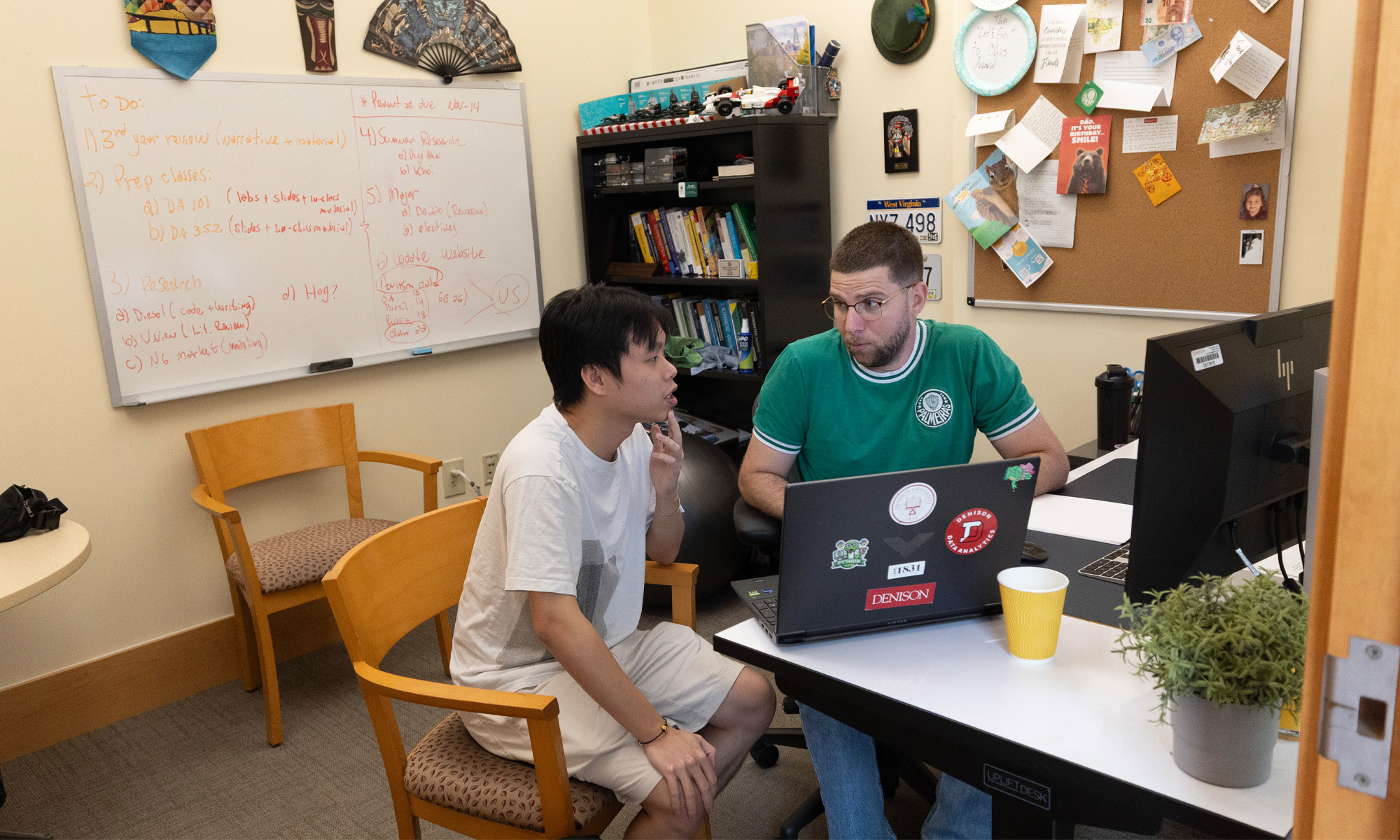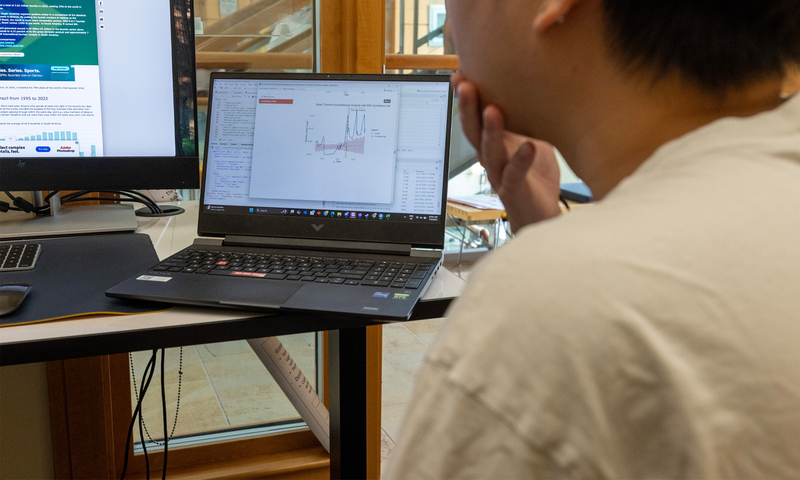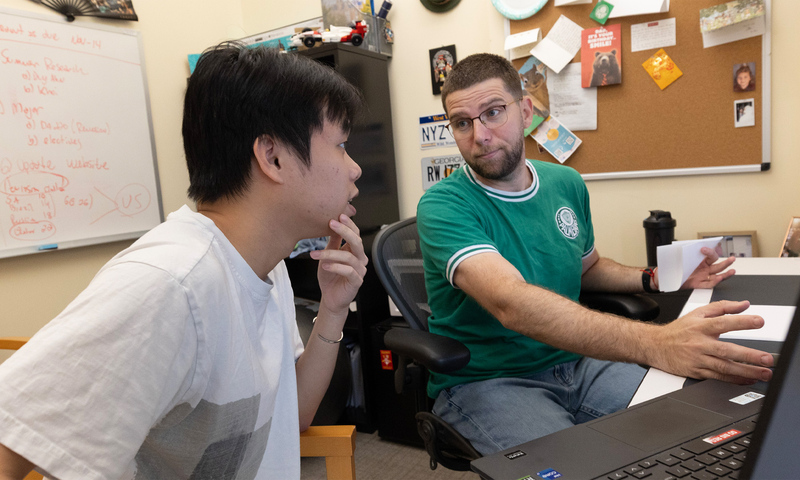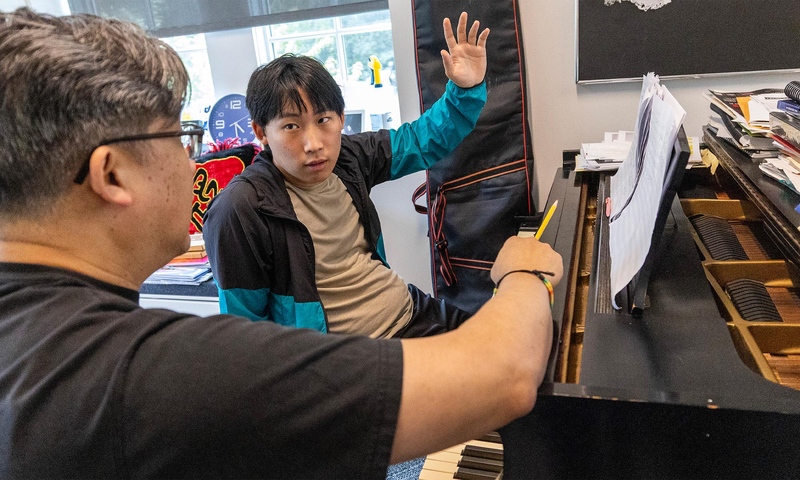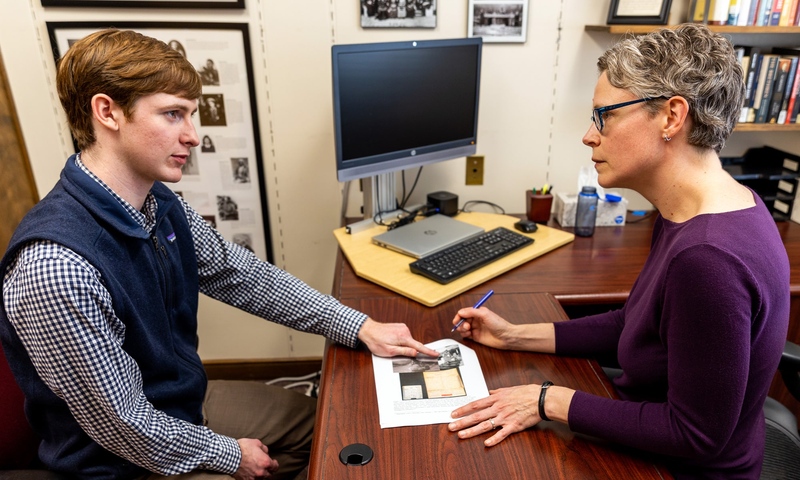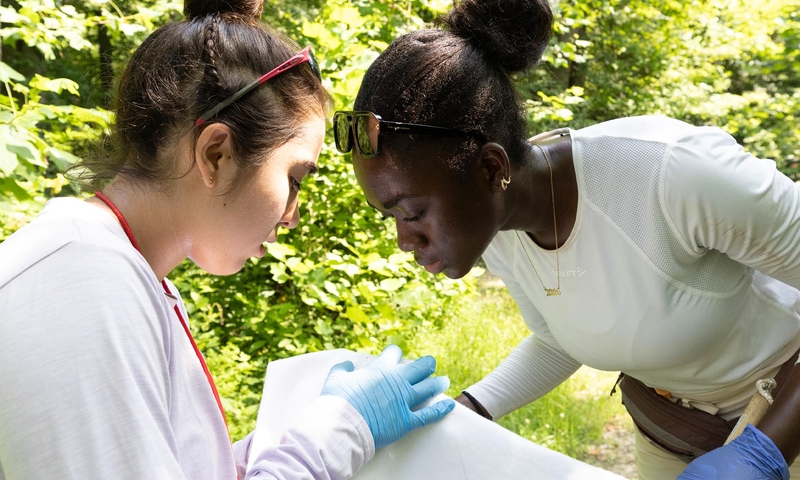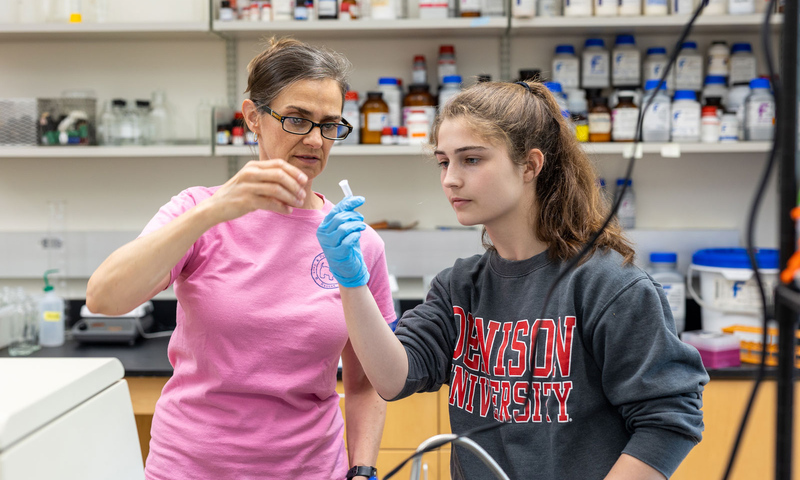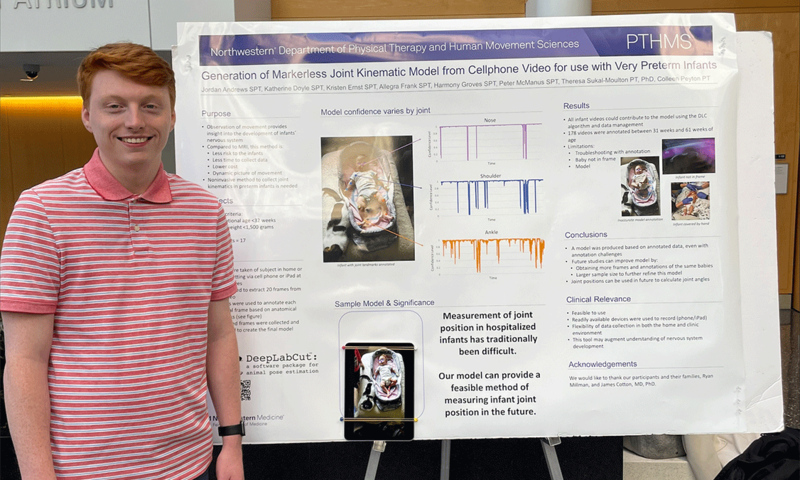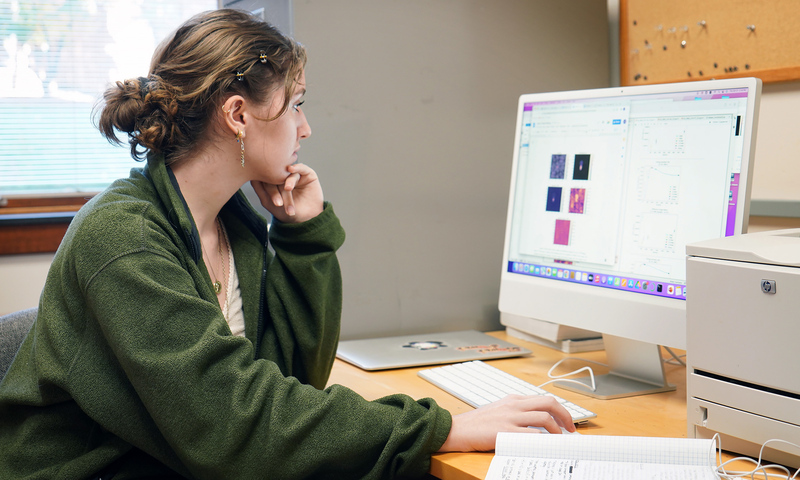Alexandre Scarcioffolo and Duy Anh Nguyen ’27 share a passion for data, economics, and soccer.
So when Nguyen approached Scarcioffolo, an applied economist and an assistant professor of data analytics, about a 2022 World Cup research project, it was game on.
The Summer Scholars program provided a perfect forum for a deep dive into Nguyen’s topic: What are the benefits for a small country like Qatar hosting one of the world’s biggest sporting events? The oil-rich nation reportedly invested a record $200 billion in the run-up to the World Cup with little short-term hope of recouping the outlay.
Scarcioffolo, who works primarily in the fields of energy commodities and finance, was intrigued. He had taught Nguyen’s introduction to data analytics class and knew him as a conscientious student.
The professor also knew the subject matter was a challenging one.
“It’s not an easy process,” Scarcioffolo says. “To do research, you don’t have to be a genius, but you have to be persistent and curious. Duy has been both.”
The student needed every bit of 10 weeks — the time allotted for the project — to find proper data to support his findings. Nguyen spent many hours in his professor’s office, where one of the walls is covered by a giant flag of Scarcioffolo’s favorite soccer team, Palmeiras, from his native Brazil.
“It has been very interesting research, but also stressful,” says Nguyen, who majors in applied mathematics and data analytics with a concentration in economics. “Because the World Cup was only three years ago, there’s not a lot of data, and a lot of what I was finding initially didn’t work for this project. It was a struggle.”
But with a Lionel Messi-like assist from his professor, Nguyen obtained his goal. He focused on tourism during a five-year stretch from 2019-24, and produced a counterfactual model that showed what the tourism figures would have resembled had Qatar not hosted the World Cup.
Nguyen got his break after finding Qatari government data sets that broke down monthly tourism. The 2019-24 figures gave him a multi-year window on either side of the World Cup to show trends. He used tourism arrivals as a proxy for international perception of the Gulf state.
“When it clicks, it’s like an ‘ah-ha’ moment,” the professor says. “Those are the moments that matter to a researcher. They are fantastic.”
Qatar endured a torrent of negative press ahead of the tournament over charges of corruption and alleged treatment of migrant workers who built the stadiums.
Nguyen’s findings support the idea that the country has seen the positive impact it envisioned when bidding on the World Cup.
“Since the World Cup, other Gulf countries have had a different view of Qatar,” Nguyen says. “A lot of countries want to do business with them, and their tourism numbers have increased.”
The student hopes his models are useful for the United States, Canada, and Mexico, co-hosts of the 2026 World Cup.
“This research gave me the chance to observe something deeper than soccer,” Nguyen said. “It taught me about the legacy and economic impact of World Cups and why countries are willing to spend so much money to host them.”


